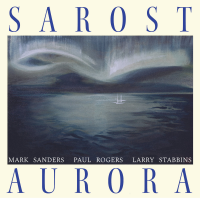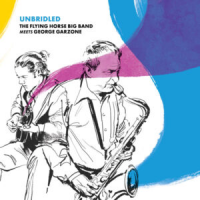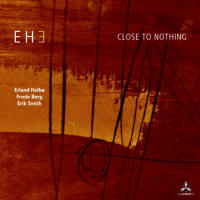Home » Jazz Articles » Album Review » Bob Belden: Black Dahlia
Bob Belden: Black Dahlia
When Belden's last grand project, a 1993 interpretation of the opera Turandot, was blocked by Giacomo Puccini's estate, Belden's work in writing and recording his own music stalled. Not that he wasn't busy. Belden has been scoring films, producing classic reissues (like Herbie Hancock's Blue Note sessions), directing sessions by Joe Henderson and creating with Tim Hagans the Miles-inspired Animation/Imagination band.
But Belden's reading of James Ellroy's "Black Dahlia" novel provided the inspiration needed to reanimate Belden's confidence and focus his writing on yet another project that combines musical drama with large-scale orchestration. In fact, the complexity of the project is so large that one wonders how Belden got the green light to proceed in these times of budget cuts. Nevertheless, Belden reports that he finished the recording on budget in two three-hour sessions.
While it is reported that the Black Dahlia Murder still resonates in Los Angeles, those of us east of the San Gabriel Mountains may draw a blank. Covered extensively in the press and involving the entire Los Angeles police force, Elizabeth Short's murder in 1947 epitomized the meretriciousness and tawdriness behind the facades that L.A. had erected for public perception. A young girl who moved to Los Angeles from Massachusetts to pursue her dream of fame, Short moved through a series of seamy encounters that eventually ended with her shudderingly gruesome murder. Police called it "The Black Dahlia Murder" because of the blackness of her hair and the attractiveness of her dresses.
It seems that the musical intellect of Belden merged with his interest in melodrama to spark a composition in 12 parts that captures Short's imagined state of mind. Starting with the "Genesis" section, Black Dahlia interjects a attention-grabbing exclamation before Belden develops a dreamy wonder described by Lawrence Feldman's alto. Alluding to Belden's fondness for Miles Davis' work, as does "Dreamworld," "In Flight" then takes her from home, breezily depicted by muted trumpet and Ira Coleman's thrilling accelerated pace "City Of Angels," as performed by Tim Hagans describes Los Angeles in serene, glowing harmonic ascents and descents with references to Jerry Goldsmith's stunning score for the movie Chinatown.
Joe Lovano brings in his unmistakable tone on "Prelude To Love" and "Danza d'Amore," Lovano being the ineffable and soft-speaking suitor fulfilling Short's quixotic attraction. Black Dahlia then takes a dark turn, reportedly reflecting on Belden's real-life rough experiences in New York in the 1980's.
Introducing night club scenes that have components of Xavier Cugat's and Stan Kenton's Latin interests, "Zanzibar" and "The Edge Of Forever" combine the thrill of the City Of Angels with its undercurrent of foreboding and danger. "Freeway (101 North)" reflects the earlier "In Flight" with the muted trumpet indicating real fear and the attempt to escape to safety. And yet, in the doomed story that continues to recur in the imaginations of Angelinos, no escape is possible. Belden wraps up the suite with a dramatic statement of violence, regret and spirituality.
While it is impressive to appreciate the overall grandeur and scope of Belden's work, Black Dahlia's success relies on the professionalism of its excution: rehearsal, direction, engineering and unity of sound. Most importantly, the soloists lend a personal voice to the a very personal project. Lawrence Feldman's alto sax, so evocative in the film noir genre, captures the feeling of allure necessary to the project. Kevin Hays' work on "Dawn" limns the rays of light bringing the city delicately to life. Tim Hagans' trumpet work becomes a touchstone in itself as it energizes Belden's concepts of movement or terror. And Belden himself brings closure to the musical story as he plays the final "Elegy."
Black Dahlia is unlike any other jazz recording to be released this year, and it is a major achievement in its own right. Black Dahlia may be as important to future jazz composers as, say, Chico O'Farrill's or Miles Davis' work were to Belden.
http://www.bluenote.com
Personnel
Bob Belden
arrangerAlbum information
Title: Black Dahlia | Year Released: 2001 | Record Label: Atlantic Jazz
Tags
PREVIOUS / NEXT
Support All About Jazz
 All About Jazz has been a pillar of jazz since 1995, championing it as an art form and, more importantly, supporting the musicians who make it. Our enduring commitment has made "AAJ" one of the most culturally important websites of its kind, read by hundreds of thousands of fans, musicians and industry figures every month.
All About Jazz has been a pillar of jazz since 1995, championing it as an art form and, more importantly, supporting the musicians who make it. Our enduring commitment has made "AAJ" one of the most culturally important websites of its kind, read by hundreds of thousands of fans, musicians and industry figures every month.






















